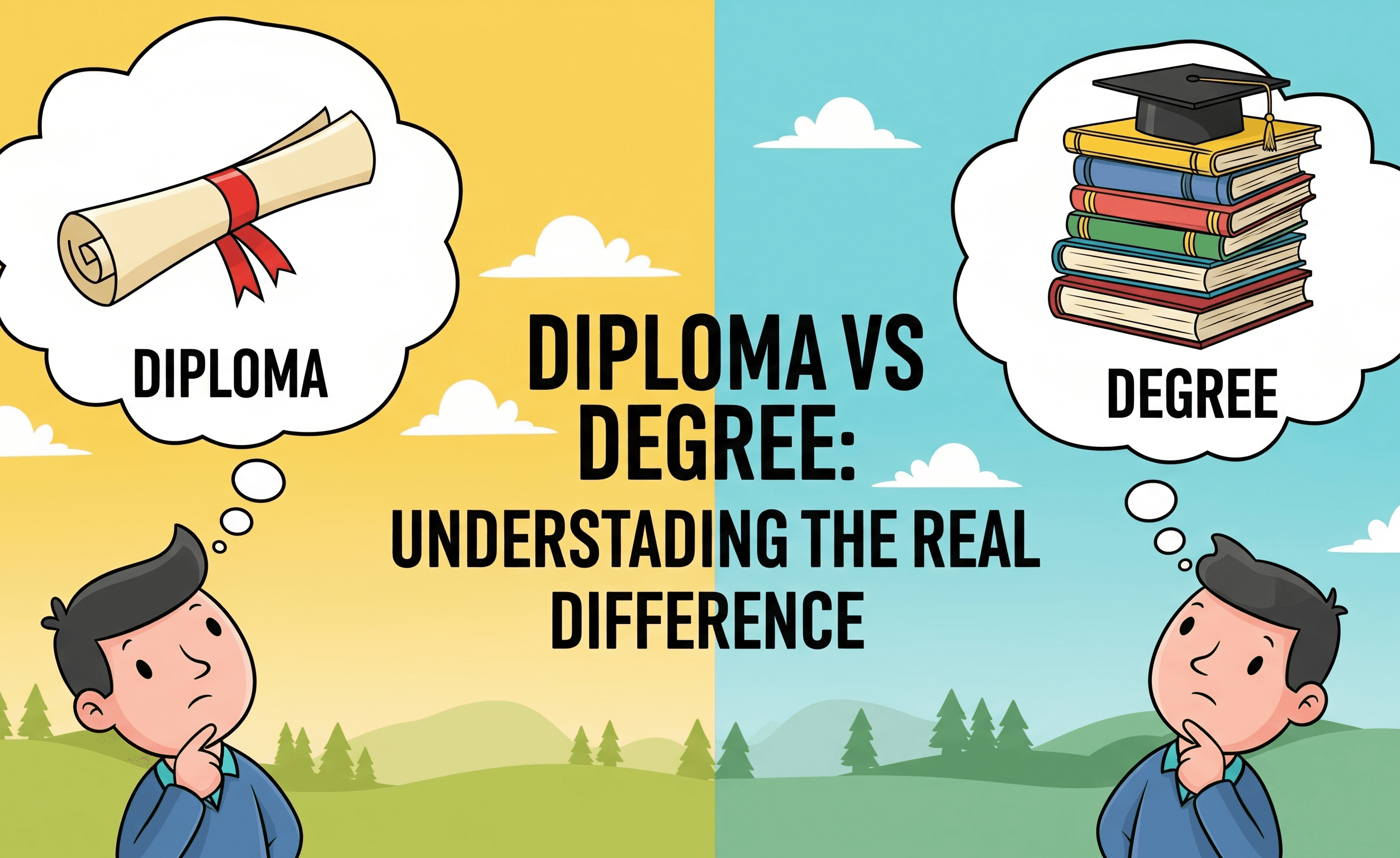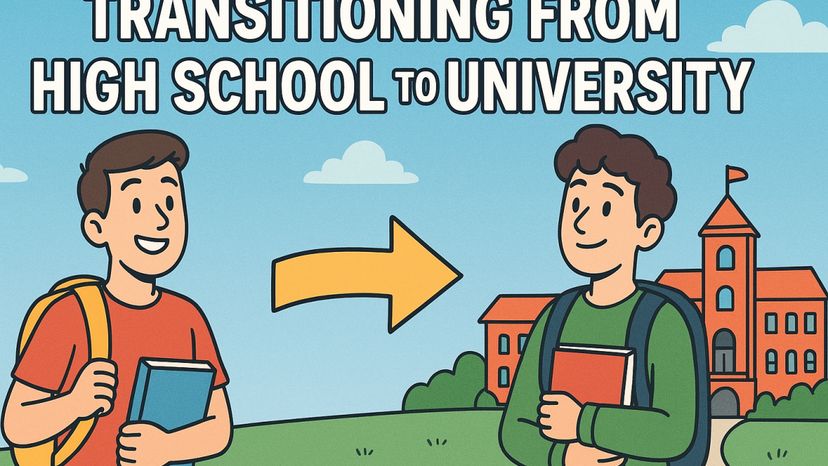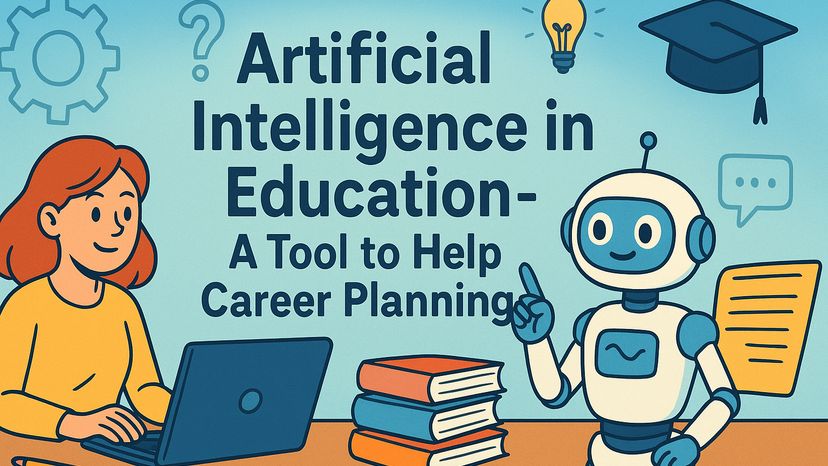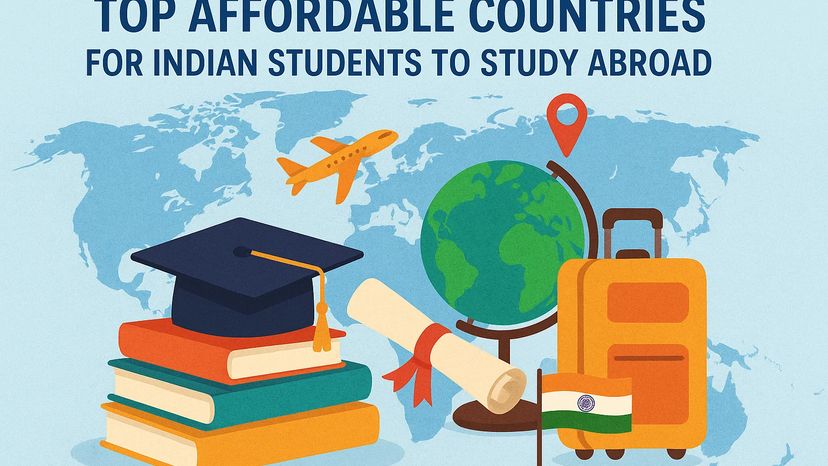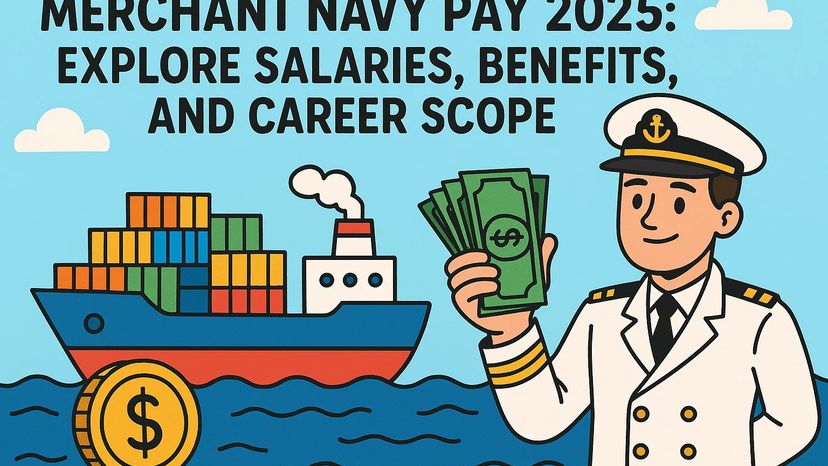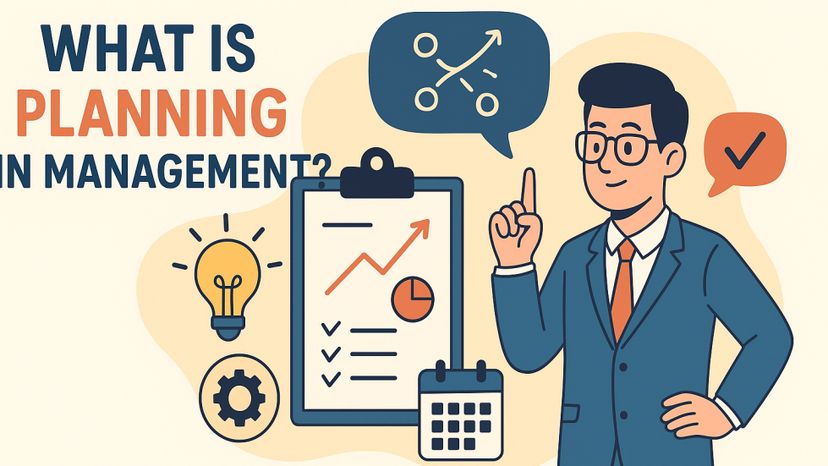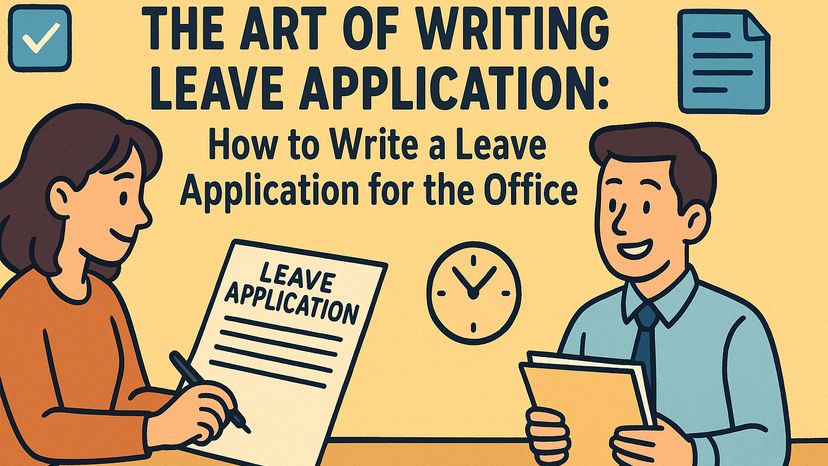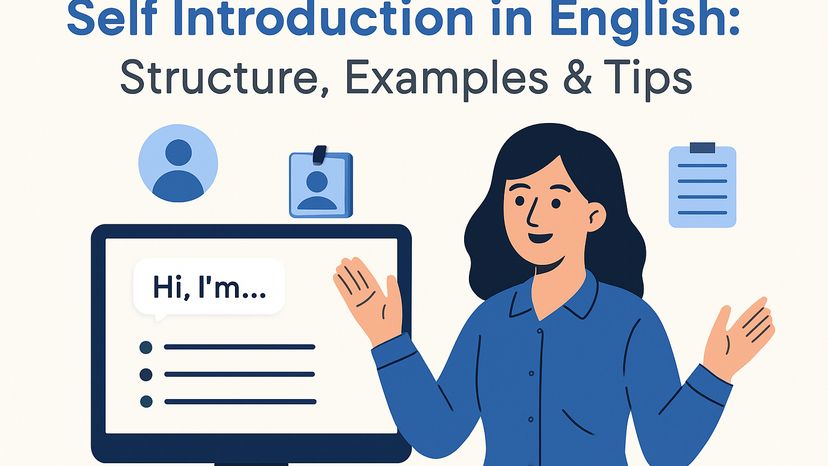One of the most important decisions students have to make in the current educational landscape is whether they should pursue a diploma or degree once they complete their certificate, diploma or degree program. The continued blurring and confusion among the many pathways students pursue daily only contribute to the confusion for students about which way to go after school, or in some cases, after their degree. Additionally, the diploma and degree difference, while both advantageous, can be made useful for your career goals by comparing a diploma to a degree. When diploma versus degree is analyzed, your goals for study, employment, exposure to a specific industry or occupational field, and comfort with additional studies in the future, will assist you in understanding the difference between degree and diploma. In this blog, we will provide an overview of the key characteristics of diplomas and degrees so you can make an informed choice without confusion. We will even highlight the diploma meaning, types of diploma programs, and how a polytechnic diploma fits into the larger picture of post-education options in India.
What is a diploma?
Essentially, a diploma is a short-term program focused on skill-based learning in an area of study, usually with some intention to provide pre-employment training for a specific job or industry. What is diploma? More formally, it is a certificate offered by educational institutions, ultimately colleges or polytechnic institutions, after completing a practical/technical course of study. Diploma programs are normally taken after completing class 10th or class 12th of schooling, with diploma programs usually being focused on engaging in more practical/skill-based learning with less concentration on theory.
There are several areas of diploma study:
- Polytechnic diploma (engineering, IT, etc)
- Diploma in Interior Design
- Diploma in Graphic Design
- Diploma in Hotel Management
- Diploma in Education (D.Ed)
Diploma programs are usually between 1–3 years and engage students more in industry-relevant skills with credentials you can rely on. There are some commonly debated discussions about diploma vs degree, where diplomas are a shorter-term, more affordable educational option, but the degree programs typically provide more thorough academic exposure.
You can also find out whether the chosen diploma degree will allow you lateral entry to higher education, or even if certain positions may be waiting for you upon completion of your bloated national certification. This process will clarify and help you streamline the academic decisions you make in life. If you wish to get further assistance with your career decision, websites like Infigon Counselling might help you with which skills you might or might not have, or might help you see which course is right for you.
What Is a Degree?
A degree is a formalized area of study that is conferred by universities and colleges after a specified length of time, usually 3-4 years. Degree programs are mostly theoretical and provide you with a broad knowledge base, with the ability to think critically, and learn how to conduct research and analyze evidence. They are considered more prestigious than diploma programs because of the depth of study.
There are different modalities of degrees:
- Bachelor's Degree (B.A., B.Com, B.Sc., B.Tech)
- Master's Degree (M.A., M.Sc., M.Tech, MBA)
- Doctorate (PhD)
If your goal is to pursue higher education, work in a corporate environment, or apply for a government job, a degree is a better option; you will see the difference between diploma and degree, based on depth, recognition, and future direction. Also, if you want to explore some degree-related careers, you may wish to visit Infigon’s blog on studying abroad for business majors, in case you want to look at international opportunities.
Diploma vs Degree: Principal Differences
Let's present the diploma vs degree comparison in easy-to-understand points:
Duration:
- Diploma: Generally 1–3 years
- Degree: Usually 3–4 years
Focus:
- Diploma: Focus on skills, job-ready training
- Degree: Focus on academic, theoretical, and research learning
Entry Level:
- Diploma: Can begin after 10th or 12th grades
- Degree: Usually requires completion of 12th grade
Depth of Study:
- Diploma: Covers knowledge ranging from basic to moderate
- Degree: Covers knowledge in greater depth and breadth
Recognition:
- Diploma: Typically recognized only in parts of sectors or industries
- Degree: Generally accepted and preferred for most professional roles
Cost:
- Diploma: Generally costs a lower amount, so it may be more financially viable
- Degree: Higher tuition and other college-related expenses
Career Options:
- Diploma: Perfect for quickly entering and beginning employment at entry-level roles
- Degree: Moving up to higher job roles, developing a career or pursuing additional education
Still have questions? A great way to begin clearing up any confusion is through Infigon’s psychometric test, which offers highly sensitive insights into your interests and skills.
Who Should Choose a Diploma?
- Students looking to head straight into work
- People who want to learn by doing and not via theory
- People who do not have the money or time for long programmes
- Anyone looking for technical roles like electrical work, design, etc.
Diplomas are designed for action-based learners who want to work in the industry faster than by eventually reading a textbook. If you are thinking of enrolling in a polytechnic diploma, it is a good entry point if you want to start a career in engineering or IT.
To dive deeper into ideas surrounding career, life, and learning, visit this interesting blog on the Infigon top 10, philosophy theories.
Who Should Choose a Degree?
- Students looking to continue to higher studies
- People wanting to build a long-term academic or corporate career
- Those looking to work in management or research roles
- People pursuing work in the government and public sector
While a diploma degree may allow you to enter the job market quickly, a degree will offer you competitive advantages and future career growth. If you're still not sure what to do, it's advisable to get expert advice to help you get on the right path. This can be done by connecting with someone on Infigon's counsellor platform.
Frequently Asked Questions
Q1. What is the difference between diploma and degree?
Ans. A diploma differs from a degree mainly because it leads to the develop-utilization of a practical skill set over a shorter time period, versus a degree, which leads to greater detail of academic knowledge over a longer time period.
Q2. Which is better—diploma or degree?
Ans. It depends on your goals. Diploma is better if you want a faster track to a job with skills training. A degree is better for long-term growth and higher education.
Q3. Is a polytechnic diploma good?
Ans. Yes, a polytechnic diploma is very good especially for students who want to go into a technical field similar to engineering, right after grade 10.
Q4. Can I do a degree after a diploma?
Ans. Yes, many institutes allow for lateral entry into your 2nd year of a degree program if you have a relevant diploma.
Q5. What types of diploma courses are there?
Ans. There are many diploma courses~IT, hospitality, design, business, etc. Each course aligns with a specific path of profession.

